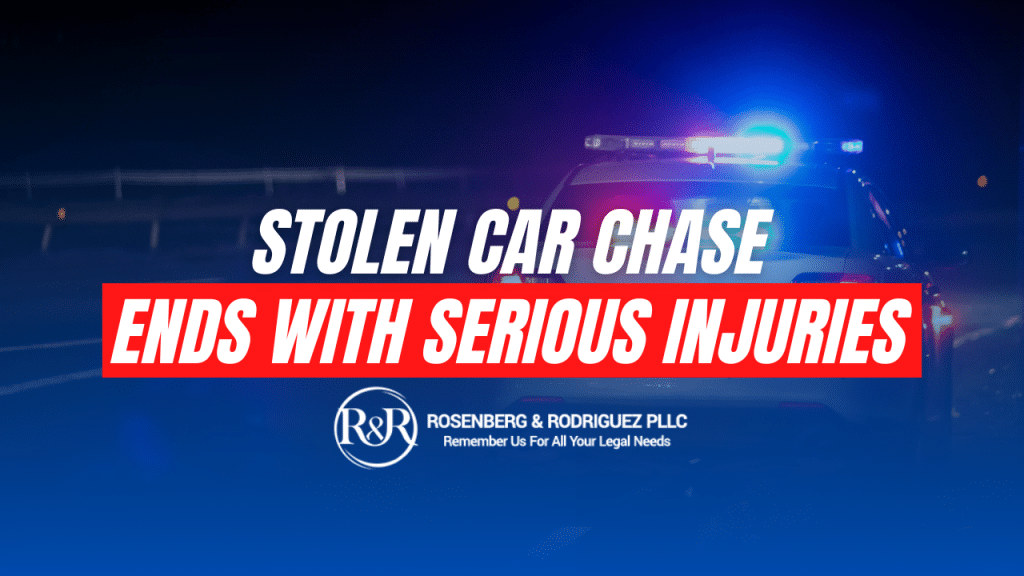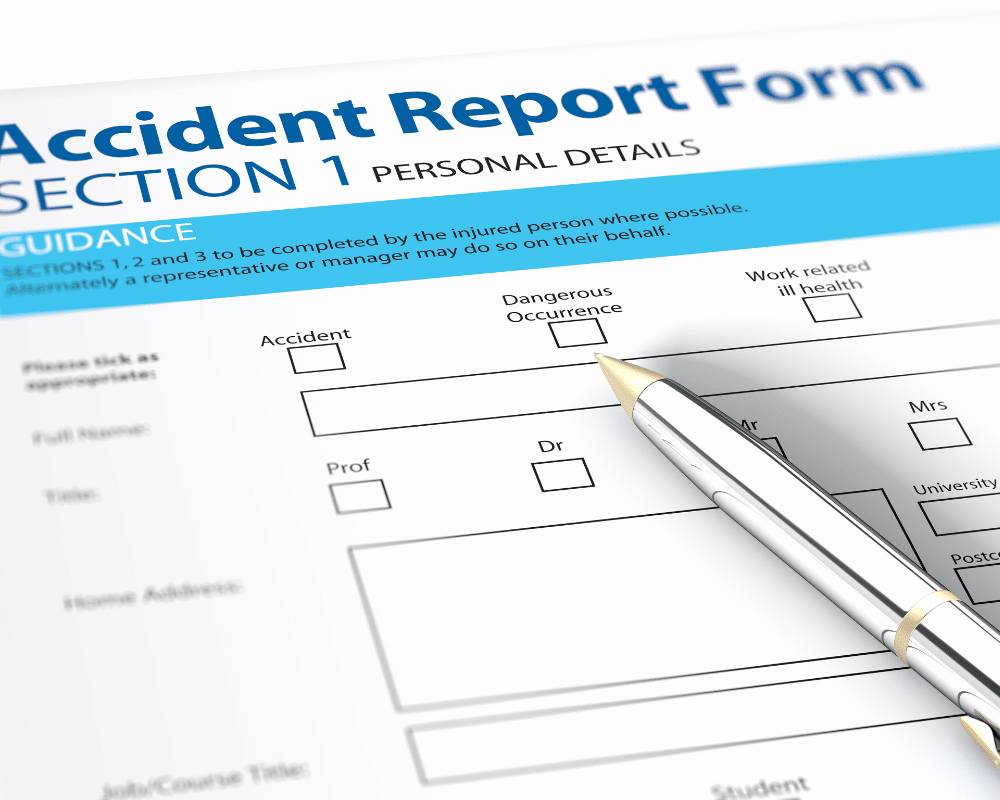At Rosenberg & Rodriguez, we often meet clients who are overwhelmed and uncertain about the steps to take following a car accident. One of the most critical steps—and one that can significantly influence the outcome of a personal injury claim—is securing comprehensive medical documentation. This post aims to highlight the importance of medical records after a car accident and how they can impact your case.
Why Medical Documentation Matters
Medical documentation serves as the foundation for any personal injury claim. In essence, these records provide an objective account of the injuries sustained, the treatment required, and the long-term effects of those injuries. Here are several key reasons why thorough medical documentation is vital:
1. Proof of Injury
The primary purpose of medical documentation is to establish that an injury occurred as a result of the car accident. Without this proof, it becomes challenging to substantiate a personal injury claim. Medical records detail the nature and extent of injuries, making it clear that they were caused by the accident and not by any pre-existing conditions.
2. Connection to the Accident
Medical documentation helps draw a direct line between the car accident and the injuries sustained. This is crucial in demonstrating causation, which is a vital element of any personal injury claim. Records such as emergency room reports, diagnostic tests, and physician notes can all serve as evidence that the injuries were a direct result of the accident.
3. Extent of Injuries
Medical records provide a detailed account of the severity and extent of your injuries. This information is critical for determining the amount of compensation you may be entitled to. For example, records from specialists, physical therapists, and surgeons can show the impact of the injuries on your daily life and future well-being.
4. Treatment Timeline
A comprehensive treatment timeline is essential for illustrating the progress and ongoing nature of your recovery. This includes initial emergency care, follow-up visits, surgeries, physical therapy, and any other medical interventions. A well-documented treatment timeline can bolster your claim by showing the necessity and duration of medical care.
5. Future Medical Needs
In some cases, injuries sustained in a car accident can have long-term or even permanent effects. Medical documentation can help outline any future medical needs, such as ongoing physical therapy, surgeries, or medications. This is important for ensuring that you receive compensation that covers not only current but also future medical expenses.
6. Loss of Wages and Earning Capacity
Severe injuries can result in time away from work or even the inability to return to your previous occupation. Medical records can support claims for lost wages and diminished earning capacity by providing evidence of how the injuries have affected your ability to work. This can include doctors’ notes excusing you from work and statements about your ability to perform job-related tasks.
7. Pain and Suffering
While pain and suffering are more subjective than other types of damages, medical documentation can still play a pivotal role in supporting these claims. Records of ongoing pain management treatments, psychological counseling, and physical limitations can help quantify the impact of the injuries on your quality of life.
Types of Medical Documentation
Understanding the types of medical documentation that can support your personal injury claim is crucial. Here are some common types of records that can be invaluable:
1. Emergency Room Records
These records provide an immediate account of your injuries and the initial treatment you received. They often include diagnostic tests, physician assessments, and treatment administered at the scene and upon arrival at the hospital.
2. Physician Notes
Doctors’ notes from follow-up visits are essential for documenting the progression of your recovery and any complications that arise. These notes can include assessments, treatment plans, and observations about your condition.
3. Diagnostic Imaging
X-rays, MRIs, CT scans, and other diagnostic imaging provide visual evidence of the injuries sustained. These images can be compelling evidence in demonstrating the severity and nature of your injuries.
4. Specialist Reports
Consultations with specialists, such as orthopedic surgeons, neurologists, and physical therapists, can provide detailed accounts of specific injuries and the recommended treatment plans. These reports can add credibility to your claim by offering expert opinions on your condition.
5. Physical Therapy Records
Records from physical therapy sessions document your rehabilitation process and the progress made over time. They can illustrate the effort and time required to regain functionality and the ongoing nature of your recovery.
6. Medication Records
Documentation of prescribed medications, including painkillers, anti-inflammatories, and other treatments, can provide insight into the severity of your pain and the necessity of ongoing medical care.
7. Mental Health Records
In some cases, car accidents can lead to psychological trauma, such as PTSD, anxiety, or depression. Records from mental health professionals, including psychologists and psychiatrists, can support claims for emotional distress and pain and suffering.
Best Practices for Securing Medical Documentation
To ensure that your medical documentation is comprehensive and supportive of your personal injury claim, consider the following best practices:
1. Seek Immediate Medical Attention
Even if you feel fine after the accident, it is essential to seek medical attention as soon as possible. Some injuries, such as whiplash or concussions, may not become apparent until hours or days later. Immediate medical attention not only ensures your well-being but also establishes a clear link between the accident and your injuries.
2. Follow Your Treatment Plan
Adhering to your doctor’s recommendations and treatment plan is crucial for your recovery and your personal injury claim. Failing to follow through with prescribed treatments can raise doubts about the severity of your injuries and your commitment to recovery.
3. Keep Detailed Records
Maintain a personal record of all medical appointments, treatments, and medications. This can help you keep track of your medical history and ensure that no important details are overlooked.
4. Communicate with Your Healthcare Providers
Ensure that your healthcare providers are aware of the circumstances of your accident and the importance of thorough documentation. Clear communication can help ensure that your medical records are complete and accurate.
5. Request Copies of All Medical Records
Request copies of all medical records related to your accident and injuries. This includes records from hospitals, physicians, specialists, and any other healthcare providers involved in your treatment.
6. Document Your Symptoms and Limitations
Keep a personal journal documenting your symptoms, pain levels, and any limitations on your daily activities. This can provide additional context for your medical records and support claims for pain and suffering.
7. Consult with an Experienced Personal Injury Attorney
Navigating the complexities of a personal injury claim can be challenging, especially when dealing with medical documentation. Consulting with an experienced personal injury attorney can help ensure that your records are properly organized and presented to support your claim.
How Rosenberg & Rodriguez Can Help
At Rosenberg & Rodriguez, we understand the critical role that medical documentation plays in personal injury claims. Our team of experienced attorneys is dedicated to helping clients secure the compensation they deserve by meticulously gathering and presenting the necessary evidence.
We work closely with medical professionals to ensure that your injuries are thoroughly documented and that your treatment is properly recorded. Our goal is to build a strong case that clearly demonstrates the impact of the accident on your life and secures the compensation you need for your recovery.
Reach Out To Rosenberg & Rodriguez Today
Medical documentation is the backbone of any personal injury claim. It provides the necessary evidence to prove the extent of your injuries, the connection to the accident, and the impact on your life. By securing comprehensive medical records and following the best practices outlined in this post, you can significantly strengthen your personal injury claim.
If you or a loved one has been injured in a car accident, don’t hesitate to reach out to the experienced team at Rosenberg & Rodriguez. We are here to guide you through the process, advocate on your behalf, and help you obtain the compensation you deserve.
Ready to take the next step? Contact Rosenberg & Rodriguez today for a free consultation and learn how we can assist you in your personal injury claim.




